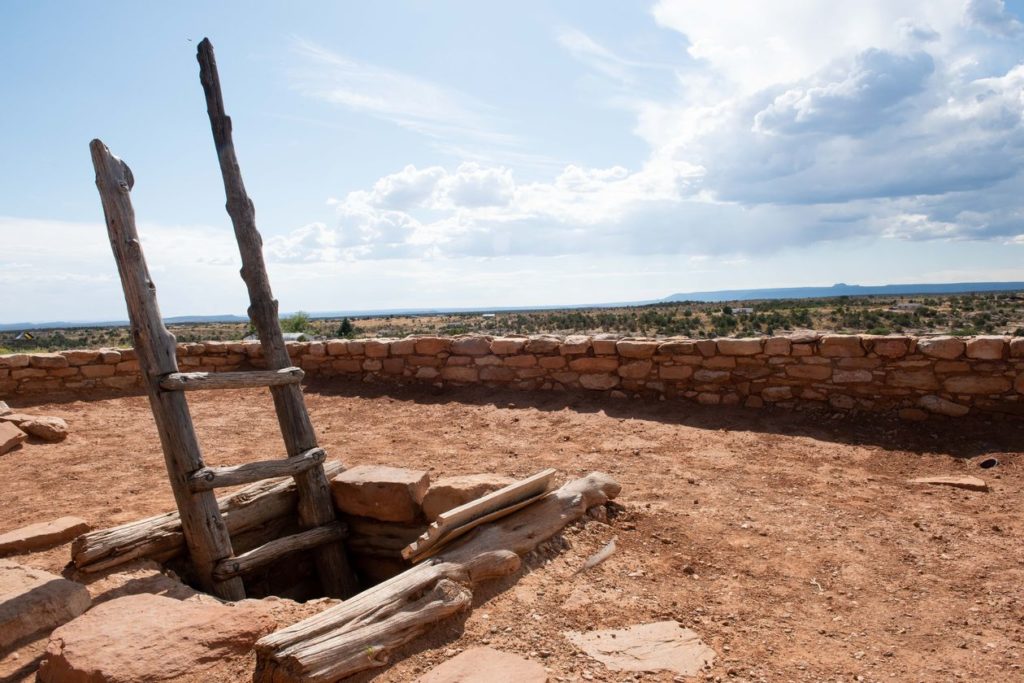
PHOTO: NIKI CHAN WYLIE FOR THE WALL STREET JOURNAL
A first-time Native American majority results in threats to break up county
By Jim Carlton | The Wall Street Journal
MONTICELLO, Utah—Navajo people managed their affairs for centuries in the spectacular buttes and mesas of what is now San Juan County, Utah, until white settlers moved in and established political and economic control here nearly 150 years ago.
Now that the Navajo have taken over the county commission for the first time, a political battle is breaking out as they push for major changes, including opposition to the Trump administration’s policy to allow more development on federal land. In response, a politically conservative white minority is seeking changes that could dilute the new commission’s power and potentially even carve out a new county.
In local and national races, American Indians are making some gains in political power across the U.S. Last year, New Mexico and Kansas elected the first Native American women to Congress, Oklahoma elected its second Native American governor and Montana boosted the percentage of American Indians in its state legislature to 7.3% from 6%.
In San Juan County, the election of two Navajo men to the three-member county commission came after a court order in 2017 changed boundaries. The shift made American Indians—who account for half of San Juan’s population, which is 45% white—the majority in two districts, rather than one, for the first time.
Willie Grayeyes and Kenneth Maryboy, both Navajos and Democrats, were elected last year. One of their first acts was to pass a resolution condemning President Trump’s decision in 2017 to reduce the size of the 1.35 million-acre Bears Ears National Monument by 85%. The vote passed 2-1, over the objection of Bruce Adams, a Republican.
The previous commission had lobbied for the smaller monument, and Mr. Adams appeared at a signing ceremony in Salt Lake City, where Mr. Trump autographed his cowboy hat.
Judges “packed two districts with a majority of Navajos, and we are seeing the results of that,” said Mr. Adams.
Mr. Maryboy declined to comment. Mr. Grayeyes expressed hopes people in the county would come together to resolve their differences. “I think we’re in the right direction at the local level,” he said.
Under its new majority, the county has also opposed proposals for drilling on surrounding federal lands, in contrast with the prior commission’s support for it.
Some locals say political debates in the region have become more vicious and filled with invective than before Navajo took political control.
Activist Mark Maryboy, the county commission member’s brother, called white critics of the new commission “redneck Mormons” at a public meeting in August. “The bottom line is they can’t stand the fact that Navajos are in charge now,” he said, citing what he calls the county’s unfair treatment of the tribe for many years.
With roughly a quarter of its 16,000 residents living below the federal poverty line, mostly on the Navajo reservation, San Juan County is the poorest county in Utah. Road upkeep and school service in tribal areas are lacking, Mark Maryboy and other Navajos say.
For example, Westwater, a community of about 100 people built on tribal land, has no electricity, running water or paved streets—even though it sits directly across a canyon from Blanding, which has full infrastructure.
“Water and electricity are right there, and they could hook it up to those people across the canyon,” said Angelo Baca, a Navajo environmental activist. City officials and former county-commission members said they offered to help provide those services to Westwater but were rebuffed.
White political leaders say economic problems on the reservation are more the responsibility of the Navajo Nation and federal Indian agencies.
“When you come after San Juan County for the oppression of Native Americans, you’re going after the wrong entity,” said Phil Lyman, a state representative and former county commissioner here.
With the current court-ordered district lines making it unlikely white Republicans will regain a majority on the county commission soon, some in San Juan are pushing for changes that could significantly alter or end Navajo control.
Mr. Lyman earlier this year said he supported proposed state legislation that would allow minority populations of counties like San Juan to create their own county.
His cousin, Blanding Mayor Joe Lyman, helped lead a petition drive that put a referendum on Tuesday’s ballot to establish a committee to consider changes in county government including an expansion of the commission to five seats.
“A three-member commission is dangerous because it can become a dictatorship,” said the mayor, who long supported the expansion but didn’t pursue it sooner because he said he thought the old commission ruled more fairly.
That explanation doesn’t fly with some. “It’s clear this isn’t a problem with the form of county government, but with who the duly-elected members of the county government are,” said James Adakai, a Navajo Nation chapter president and chair of the San Juan County Democratic Party.
Both sides say the issue of representation could end up in the courts again.
In early October, the region’s U.S. representative, Republican John Curtis, convened a meeting of city, county, state and tribal leaders in Blanding to discuss how they could jointly address problems like conditions on the reservation. At the gathering’s conclusion, Mr. Curtis and Jonathan Nez, president of the Navajo Nation, appointed a joint task force with San Juan County to focus first on roads.
“The Navajo people and non-Native people aren’t going anywhere,” Mr. Nez said after the meeting. “We have to work together.”












